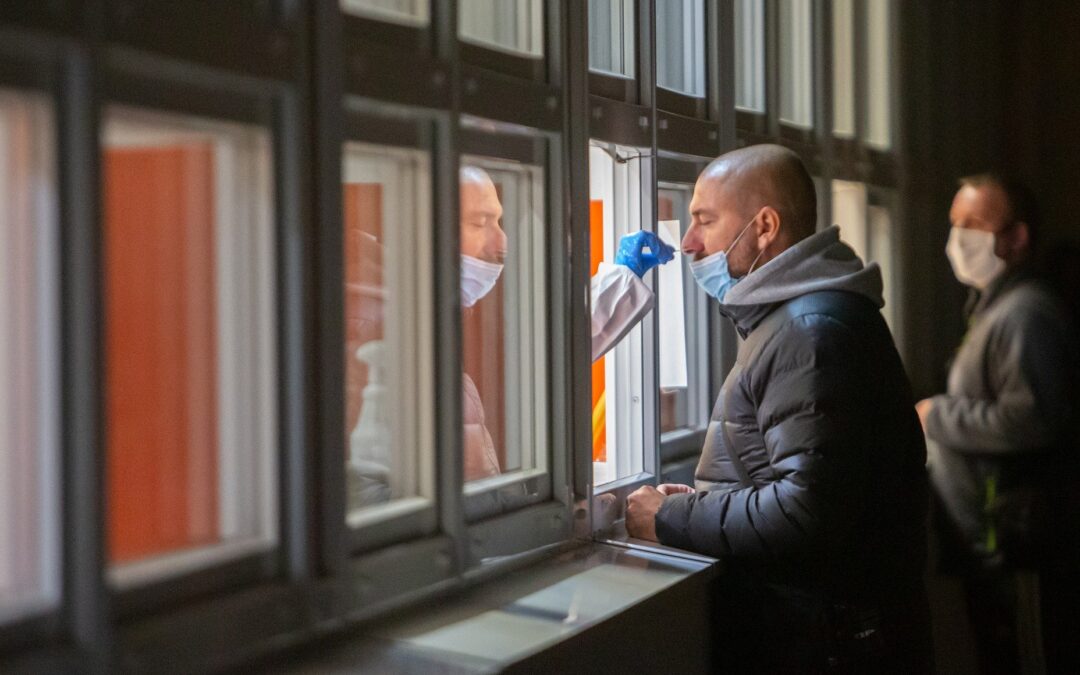The government has announced that it will carry out mass coronavirus screening in three of Poland’s 16 provinces and that work is already underway to prepare the logistics.
The health minister, Adam Niedzielski, said that antigen testing would be conducted on the populations of Podkarpackie, Małopolska and Silesia provinces, which have a combined population of around 10 million (over a quarter of Poland’s entire population).
Speaking to RMF FM today, Niedzielski said that the government would decide this week whether the screening should be voluntary or compulsory, and that the starting date will depend on which model is chosen.
“In the first [voluntary] model, we will give general practitioners access to such tests and then everyone will be able to come and get tested,” he explained. This could “probably be started right away”.
“The second [compulsory] model would use the entire network of ‘drive through’ testing points in the three regions and then a referral which we would receive by text message, for example,” he continued. This would take “a week or two to organise”.
The screening plans were first mentioned on Saturday by deputy health minister Waldemar Kraska in an interview on Radio Zet. Kraska said that the government was “considering conducting population testing for the presence of coronavirus in one or several provinces”.
“We have two million rapid tests,” he added, explaining that the government was waiting to hear the results of similar screening in countries in Western Europe, such as the United Kingdom. “We need to approach this sensibly for it to make scientific sense.”
The health minister was later asked for details of the proposed screening at the press conference on Saturday where the prime minister laid out the government’s plans for dealing with the pandemic in the coming months.
“We will be using antigen tests and have held intensive discussions over which regions to choose…They will be Podkarpackie, Małopolska and Silesia Provinces,” Niedzielski confirmed, quoted by Interia.
“In the near future, we will be working out what the logistical model of conducting these tests will be. We want to reach and carry out the testing in the regions that are most affected by coronavirus infections,” he added.
Poland currently conducts the EU’s second lowest number of coronavirus tests in relation to population, above only Bulgaria. It also has the highest proportion of tests that return positive – recently averaging almost 50%.
Earlier this month, Slovakia attempted to screen its entire adult population for coronavirus, carrying out antigen tests on 3.6 million people (two thirds of the total population of 5.45 million) in a single weekend.
The screening was voluntary, but those who did not take part were required to quarantine. Only 1% of tests gave positive results, although antigen tests are less accurate than the PCR method, reports Euronews.
The populations of Podkarpackie, Małopolska and Silesia, the southern Polish provinces where the proposed screening will take place, are 2.13, 3.39 and 4.55 million respectively.
In today’s interview, the health minister also said that the government hoped in January to begin vaccination of medics, members of the uniformed services, and people at most risk from the virus.
“We are in constant contact with the producers of coronavirus vaccines who are most advanced”, Niedzielski told RMF FM, adding that he expected one million vaccines to be received from each of the two suppliers in December.
Main image credit: lukasmilan z Pixabay

Ben Koschalka is a translator, lecturer, and senior editor at Notes from Poland. Originally from Britain, he has lived in Kraków since 2005.




















